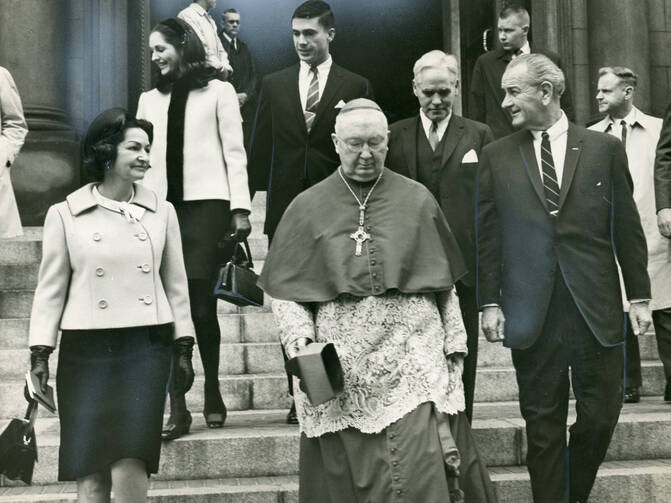To celebrate the 50 anniversary of the Civil Rights Movement, the U.S. Conference of Catholic Bishops’ (USCCB) Subcommittee on African American Affairs will release a series of resources to highlight the achievements of the Civil Rights era and its connections to the Catholic Church. Over the next 12 months, resources will highlight the Mississippi Freedom Summer (June to August 1964); the Civil Rights Act (July 1964); the March from Selma to Montgomery (March 1965); and the 50 anniversary of the Voting Rights Act in August 2015.
“The Civil Rights era was an important time in the history of our country. In constructive ways, many priests, religious sisters, religious brothers and lay Catholic faithful were involved in the struggle for Civil Rights,” said Bishop Shelton Fabre of Houma-Thibodaux, Louisiana, chairman of the Subcommittee. “Recalling the Catholic Church’s past participation in these important historic moments serves to challenge the faithful to work constructively today to enhance the common good for people of all races and ethnicities.”
The resources will help promote dialogue among parishes, schools, Catholic groups and others by examining how these events helped pave the way to the current multicultural relations. The project also aims to promote dialogue among generations on the meaning of the historic legacy with a look towards the future and to highlight the participation of the Catholic Church and Catholic leaders during such historic and challenging times. The commemoration will also provide an opportunity to discuss the social teachings of the Roman Catholic Church.
“Reflecting upon the Church’s social teachings from the perspective of the history of Civil Rights is an opportunity to become more faithful disciples of Jesus Christ as we strive to live these social teachings today and share them with others,” Bishop Fabre said.
Resources will include a series of blog posts; historical references of the Civil Rights Movement; suggestions about activities that parishes, schools and ministry groups can organize to mark the anniversaries; a calendar of diocesan events, prayer and catechetical resources; video clips; and practical ideas for engaging the Catholic community this year and next.
Photo: Then-Archbishop Patrick A. O'Boyle of Washington walks with U.S. President Lyndon B. Johnson following a 1968 Mass in Washington. The archbishop, who was later named a cardinal, was a vocal supporter of the Civil Rights Act, signed into law by Johnson Ju ly 2, 1964. He also integrated Catholic schools in the Washington Archdiocese 16 years before the Civil Rights Act. (CNS file photo)








